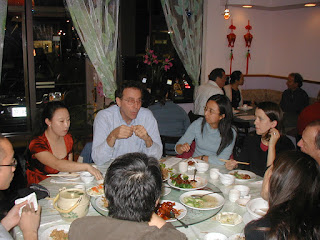In
Nature there is an interesting note regarding how to deal with cancers. Simply stated:
1. We know that cancers are driven by genetic pathways that have become aberrant
2. We know that cancers can be attacked by the immune system with the help of certain targeted therapies using antibodies such as those attacking PD-1, CTLA4, HER2 etc
3. We know that these above two factors are often organ independent
4. Thus instead of dealing with organ specific cancer treatment we should be focusing on genetic specific cancer treatment.
This means that a priori we should sequence the cancer cells independent of organ and start from there. We have spent centuries dealing with organ first and it is about time to deal with genes first. I have posted a recent Note regarding cancer vaccines. After reading the Nature piece I noted that my suggestions and observations in the Note follow just such a shift in paradigm.
As Nature notes:
This attachment to classifying cancer — and addressing it — on the
basis of the organ in which it originated is stalling progress in
multiple ways. First, it runs counter to the scientific understanding now emerging. The
past two decades of cancer research, which have been dominated by
efforts to characterize tumours at the cellular and molecular level,
have shown that some of the molecular events driving their evolution are
shared across different ‘types’ of cancer. Mutations in the tumour
suppressor gene TP53, for example, are a feature of most types of
cancer, as defined by the organ in which the cancer originated. What’s
more, most cancer types can be subdivided into different molecular
subgroups. Some lung cancers have mutations in the epidermal growth
factor receptor (EGFR) gene, some have mutations in the MET gene, others have translocations involving the ALK gene, and so on. Second
— as already described — classifying cancer according to the organ in
which it originated is making it harder for patients to obtain the drugs
that could help them. In fact, when it comes to regulators approving
the use of treatments, molecular-based classifications are likely to
become ever more important as more drugs are developed using advanced
biotechnologies.
I strongly believe that this trend, an actual paradigm shift, focuses on the problem not the organ. Thus metastasis no longer would exist since it is nothing more than an extension of the aberrant gene expressions..Focusing on the aberrant genes we then focus on the whole body and not an organ at a time. This is the expression of what is today's reality.
Thus instead of an Oncology book contents being:
1. Nervous System
2. Respiratory
3. Head and Neck
4. Genitourinary
5. Digestive
etc where the subsets are often the gene targets. Instead it would be:
1. PD-1, PDL-1
2. mTOR
3. JAK
4. HER2
5. etc
Then the subsets of each would then be the organ.
This flips the view 90 degrees if you will, and it demands genetic profiling initially on all suspected lesions from the initial target lesion. It would turn Oncology on its head. Possibly make it a great deal more effective. Surgery would most likely not be affected but treatment would be.

















